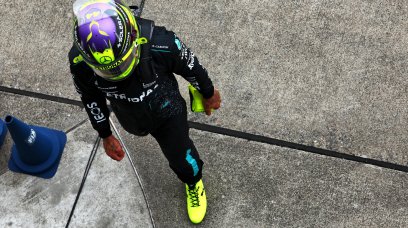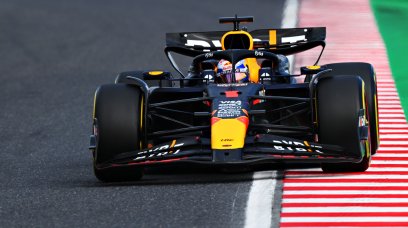The 2022 Formula 1 season quickly became a write-off for Mercedes, and the remainder of the season effectively became an extended test session for 2023. The fundamental floor problem with the car was initially masked by porpoising, but when the W13's true Achilles' heel was identified, the team could not do anything to rectify it during the season. It had been designed to run on the deck to take advantage of the new ground effect technical regulations but for the first time since 2013, the team made a faux pas and the car was mostly unable to compete with Ferrari and Red Bull. Team boss Toto Wolff admitted that they had actually changed concept mid-season - with the zero sidepods more for show than concept - but this was not the only hard work put in by Mercedes. Their power unit - so long the class of the F1 field - received special attention, as High Performance Powertrains boss Hywel Thomas explains in an era where performance upgrades are now banned.
"On the power unit side, we were trying to add performance throughout the season by small gains at pretty much every event," Thomas explained in Mercedes' end-of-season debrief with Wolff and Technical Director Mike Elliott. "When we came back from [the season-opener] in Bahrain, we said: 'How are we going to do this? How are we going to put performance on the car from our side?' "It was [clear] that we were going to have to make small gains, every weekend, just keep picking off a little gain and a little gain and a little gain while at the same time, not compromising the reliability. That's what we were seeing. "We are in some ways a little bit fortunate that you can see some of those numbers on the dyno, you can do the tests and see how it develops a little bit more energy. "You can say 'okay, we are taking that to the circuit' and it's comforting to be able to watch that and see it working."
Porpoising takes a toll on the power units
Of all the teams, Mercedes were worst affected by porpoising in the early stages of the season, with the Azerbaijan Grand Prix in Baku a particularly violent experience for George Russell and especially Lewis Hamilton as the team tried radical set-ups. F1 tech boss Pat Symonds says the team's reaction to Baku meant the FIA "overreacted" in trying to solve porpoising but Thomas has also revealed an effect the bouncing was having on the power units. "It was becoming very clear that the bottom of the engines were taking a hell of a pounding," he explains. "It was quite a surprise to see exactly how hard they were being hit into the ground and when you saw Lewis and George looking a bit uncomfortable getting out of the cars, the PUs were much the same."
Most read



















